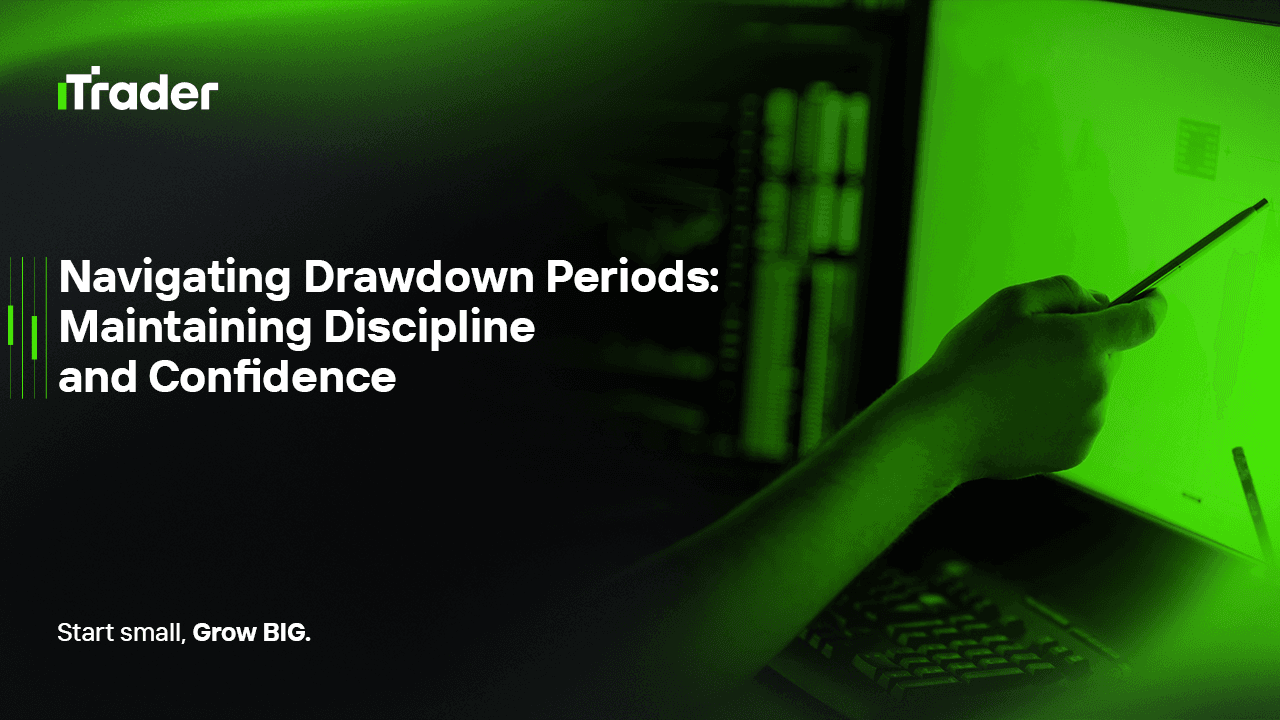2025-08-04
Forex trading is not merely a technical or strategic exercise—it is a deep psychological endeavor. While developing a profitable system is crucial, a trader’s long-term success ultimately depends on how well they manage their mental resilience during adverse periods. Among these, drawdowns are particularly challenging, especially for prop traders working under evaluation, pressure, and strict risk limits.

In this blog, we’ll explore the emotional structure behind drawdowns and provide a detailed roadmap on how professional traders can maintain discipline and confidence even when facing consecutive losses or underperformance.
A drawdown is the decline in account equity from a peak to a trough. It represents the temporary loss in value due to a sequence of losing trades. While mathematically it is just a number, psychologically it carries significant weight.
Drawdowns manifest in two major dimensions:
A drawdown is inevitable in any robust strategy. What varies is how traders respond to it.
During a drawdown, traders often go through five psychological stages:
Each stage poses a decision-making risk. Discipline and belief are what keep traders grounded and systematic throughout this cycle.
Discipline is the ability to follow predefined rules and logic-based actions, even under stress.
Discipline is about responding based on criteria, not emotion. A well-crafted protocol turns panic into controlled responses.
Discipline is the foundation of consistent performance. During drawdowns, it's what separates professionals from gamblers.
Staying confident in your system—even when it underperforms—is a sign of maturity in trading psychology.
A robust performance review framework helps separate natural drawdowns from systemic failure.
Keeping a journal is especially valuable during drawdowns. It reveals behavioral patterns and strategy weaknesses.
Include:
This creates a feedback loop that improves both your system and your psychology.
Prop traders face additional pressure during drawdowns:
To manage these risks:
In prop trading, drawdowns are not just technical declines—they are emotional storms. To navigate them successfully:
Success is not defined by how well a strategy performs at its peak, but by how committed you remain when it underperforms. True trading mastery comes when you can follow your plan—not just during the highs, but more importantly, through the inevitable lows.
© 2025 iTrader Global Limited|会社登録番号:15962
iTrader Global Limitedは、コモロ連合のアンジュアン自治島ムツァムドゥのHamchakoに所在し、コモロ証券委員会によって認可・規制を受けています。ライセンス番号は L15962/ITGL です。
iTrader Global Limitedは「iTrader」の商号で運営しており、外国為替取引業務を行う許可を受けています。会社のロゴ、商標、ウェブサイトはすべて iTrader Global Limited の専有財産です。
iTrader Global Limitedの他の子会社には、iTrader Global Pty Ltd(オーストラリア会社登録番号(ACN):686 857 198)が含まれます。 この会社は、Opheleo Holdings Pty Ltd(オーストラリア金融サービスライセンス(AFSL)番号:000224485)の認可を受けた代表者(AFS代表番号:001315037)です。登録住所は Level 1, 256 Rundle St, Adelaide, SA 5000 です。
免責事項: この法人は、本ウェブサイト上で取引される金融商品の発行者ではなく、それらに対して責任を負いません。
リスク警告: 差金決済取引(CFD)は、レバレッジにより資本の急速な損失リスクが高く、すべての利用者に適しているとは限りません。
ファンド、CFD、その他の高レバレッジ商品を取引するには、専門的な知識が必要です。
調査によると、84.01%のレバレッジ取引者が損失を被っています。取引を開始する前に、リスクを十分に理解し、資金を失う可能性があることを認識してください。
iTraderは、レバレッジ取引によるリスク、損失、またはその他の損害について、個人または法人に対して一切の責任を負わないことを明言します。
利用制限: iTraderは、法律、規制、または政策によりこのような活動が禁止されている国の居住者を対象として、本ウェブサイトやサービスを提供していません。